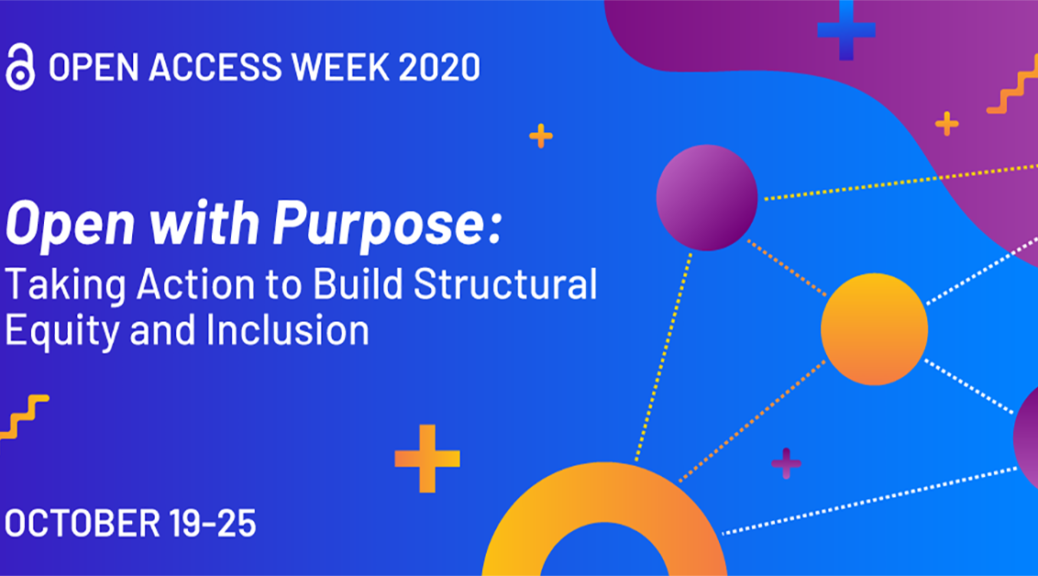Knowledge unfortunately isn’t free.
Much of the research being conducted at universities, colleges, and institutes around the world is written up by professors, graduate students, and research associates and published in toll-access (subscription) journals. Anyone lacking a subscription to that journal will not be able to access the articles published there. This creates a serious access problem for many people across the globe.
An alternative method of publishing, called Open Access, allows for anyone to read the results of research for free.
So, why should you care?
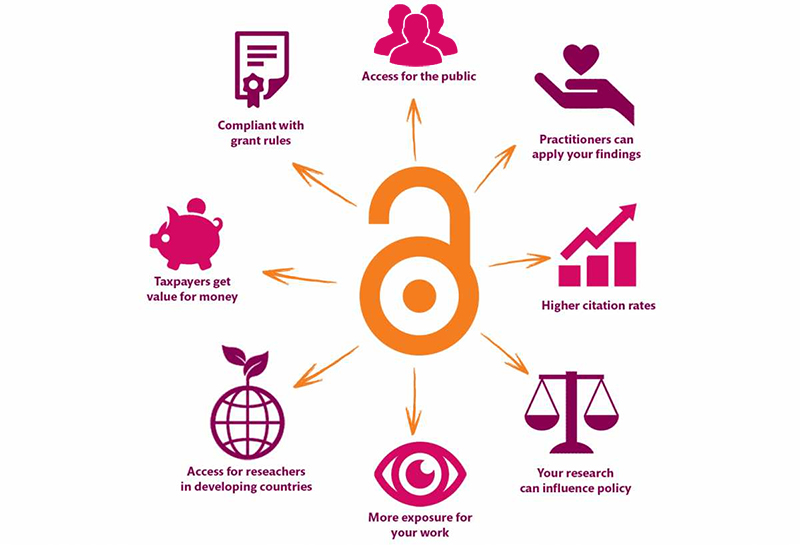
The short version:
- expensive journals = less access to research results, especially for those outside of wealthy higher-ed institutions
- less access = less research being done and/or research not happening quickly because of access barriers
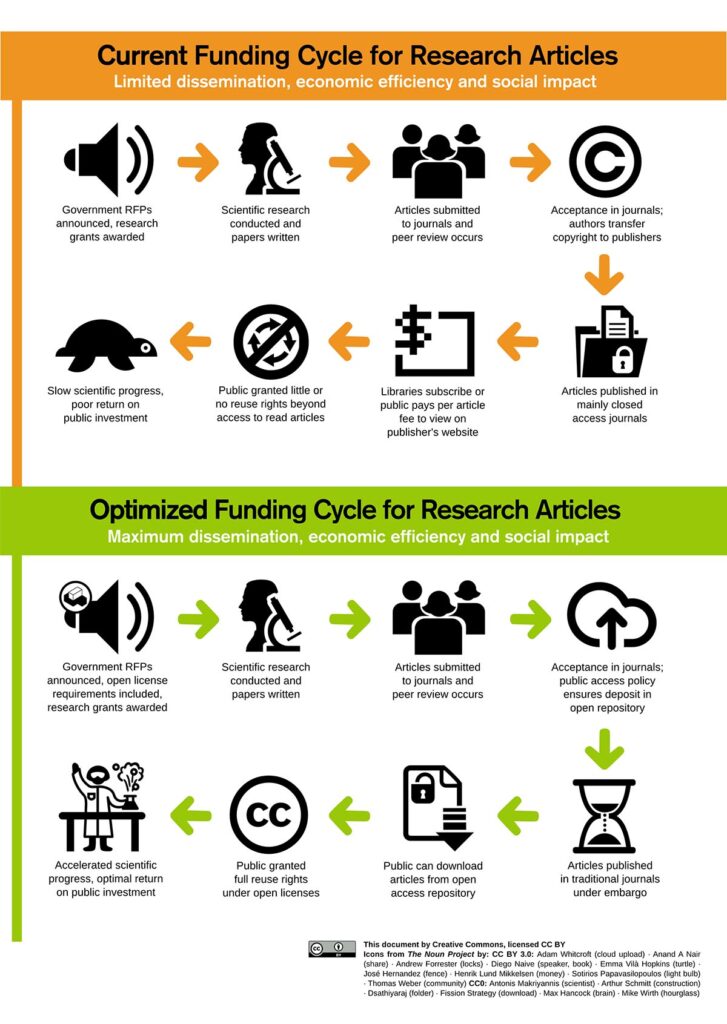
Open Access at UT
UT Libraries cares deeply about the issue of access for all. For many years we’ve invested in open access publishing and infrastructure in an effort to help shift the scholarly publishing system to a more equitable form.
In celebration of Open Access Week 2020, we’d like to highlight some of the projects we’ve invested in and/or supported over the years. This support can take the form of financial contributions, technical support, content creation, and ongoing promotion and management. We encourage you to check out these open access projects and experience the wide range of disciplines and content types that they represent.
Open Access publishing

- This is a newly-launched open access, peer-reviewed journal in mathematical analysis. One of the founding editors is a UT faculty member and UT Libraries financially supports this journal so that it is free for both readers and for authors.
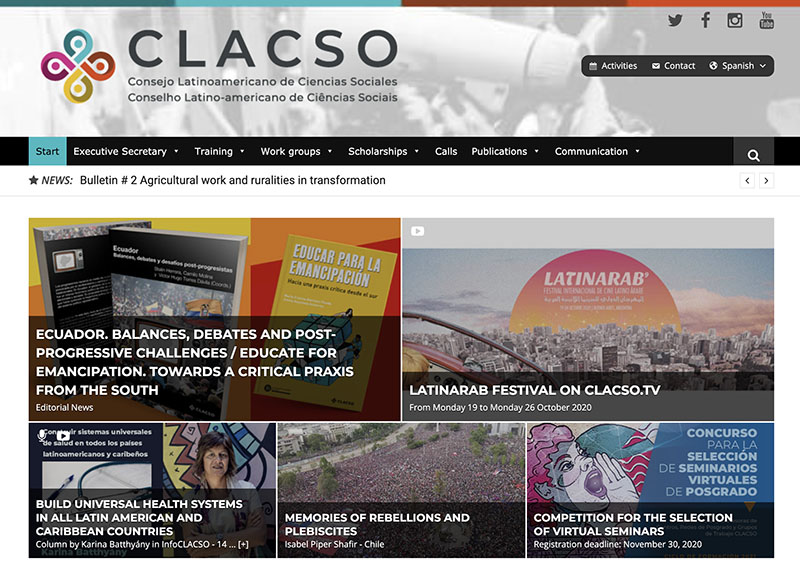
- Consejo Latinoamericano de Ciencias Sociales (CLACSO) is a Latin American open access monograph publishing effort that UT helped organize and financially supports.
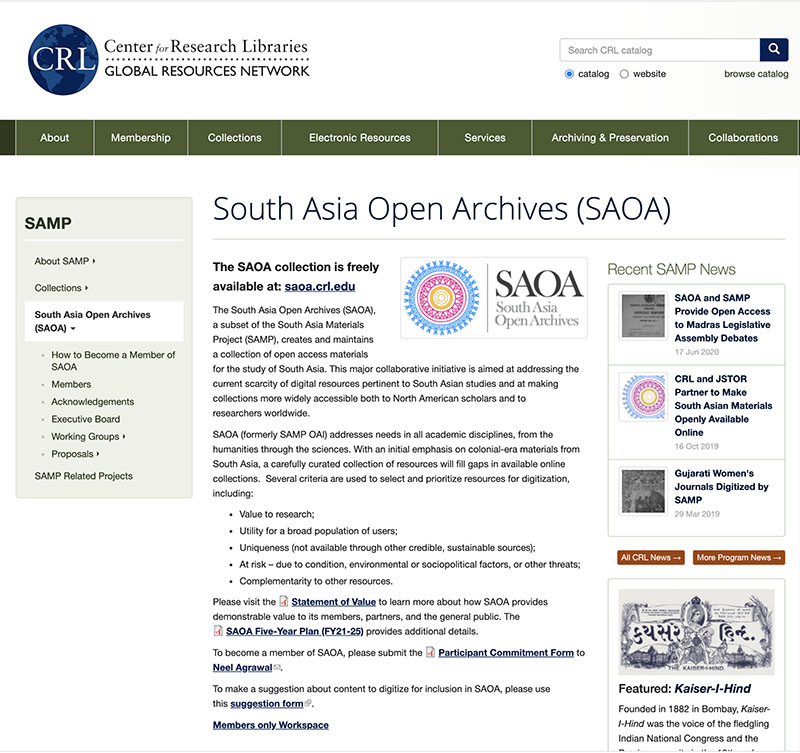
- SAOA is a collection of open access materials for research and teaching about South Asia. The initial emphasis was on colonial-era materials, but current selection criteria include: value to research, utility for a broad population of users, uniqueness, at risk, and complementary to other resources.
- This effort is supported by the Center for Research Libraries and over 25 member libraries, including UT.
Open Educational Resources
Latin American, U.S. Latinx, and African Diaspora Teaching & Learning Resources
- This project is a rich resource for lesson plans for K-12 and college level courses, and the primary source materials that support those lessons.
- The project has three main partners at UT: College of Liberal Arts, University of Texas Libraries, and the Department of Curriculum & Instruction.
- This content is provided free of charge and with licenses that allow for reuse.
- “The Information Literacy Toolkit is a collection of resources that faculty and instructors can use to help plan or implement assignments in classes. These resources can help you scaffold research skills into your classes, think of new ways to assign research, and help you assess your students’ work.“
- The toolkit was created and is maintained by the Teaching & Learning Services unit within UT Libraries (UTL), although others at UTL are free to contribute.
- Content is licensed with a Creative Commons License Attribution Non-Commercial license.
Digital Projects Using Special Collections
- This resource is a starting point for educators wishing to design instructional sessions that incorporate campus collections into final digital projects. Here you will find learning outcomes, things to consider before you begin planning, sample syllabi and assignments, assessment tools, recommended readings, and guidelines for copyright and fair use
- This project was created by staff from UT Libraries, LLILAS Benson, and the Harry Ransom Center.
- Content is licensed with a Creative Commons License Attribution Non-Commercial license.
Open Access Infrastructure
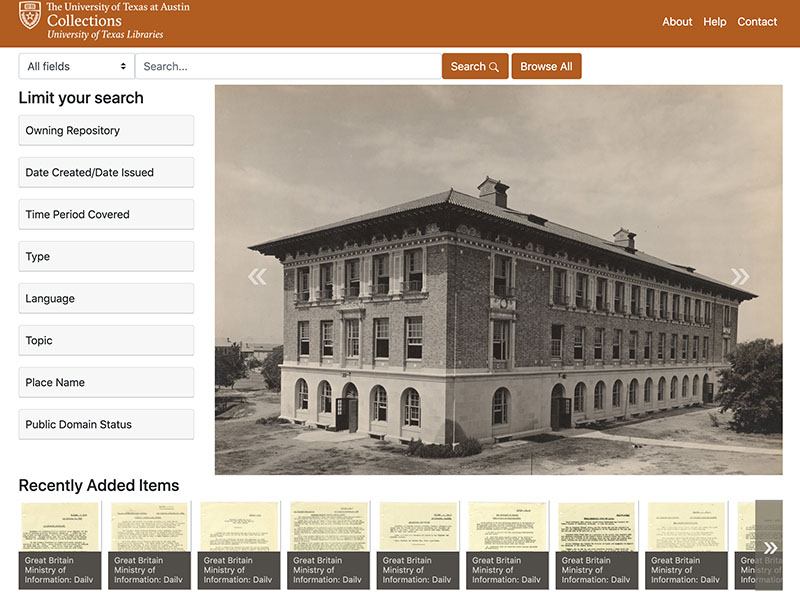
- The Collections Portal provides free, online access to a sub-set of the UT Libraries vast collections. The platform uses open source technology like Fedora, Blacklight, and IIIF.
- Copyright status of items varies.
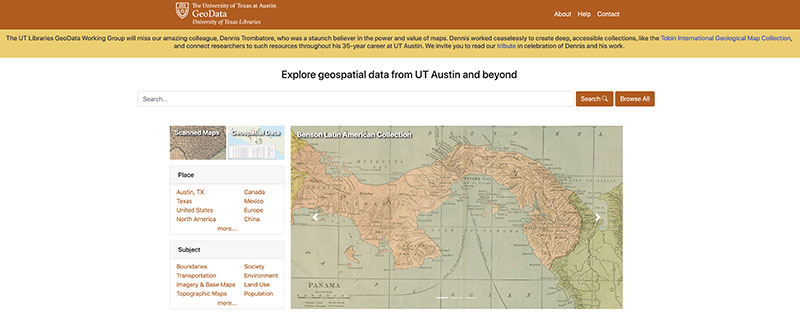
- The Portal provides access to some of the geospatial data from the UT Libraries collections. It’s also been configured to allow users to search raster and vector datasets from other universities that utilize the GeoBlacklight infrastructure.
- All items contributed by UT Libraries are free to reuse.
Latin American Digital Initiatives Repository (LADI)
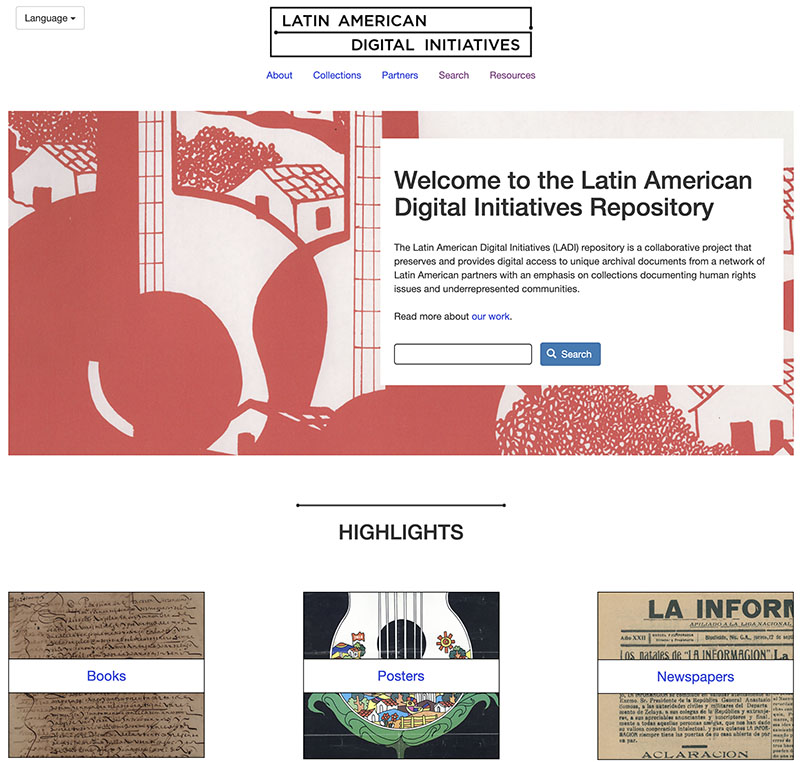
- LADI is a digital repository that provides access to thousands of items from the 1500s to the present. The repository has an emphasis on providing access to collections that document human rights issues and underrepresented communities.
- Copyright status of items varies.
Texas ScholarWorks (TSW)
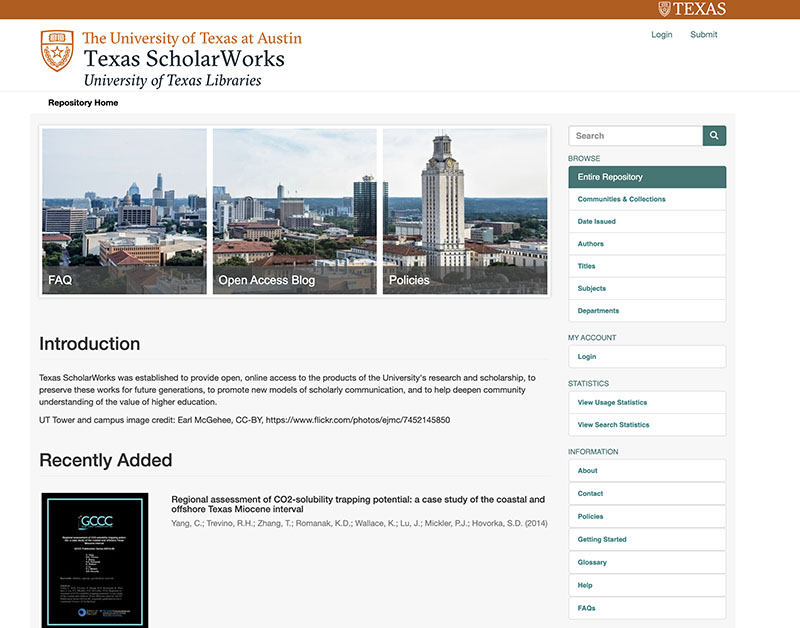
- This repository provides open, online access to the products of the University’s research and scholarship. It is hosted by the Texas Digital Library, a consortium of higher ed institutions in Texas that builds capacity for preserving, managing, and providing access to digital collections.
- Copyright status of items varies.
Texas Data Repository (TDR)
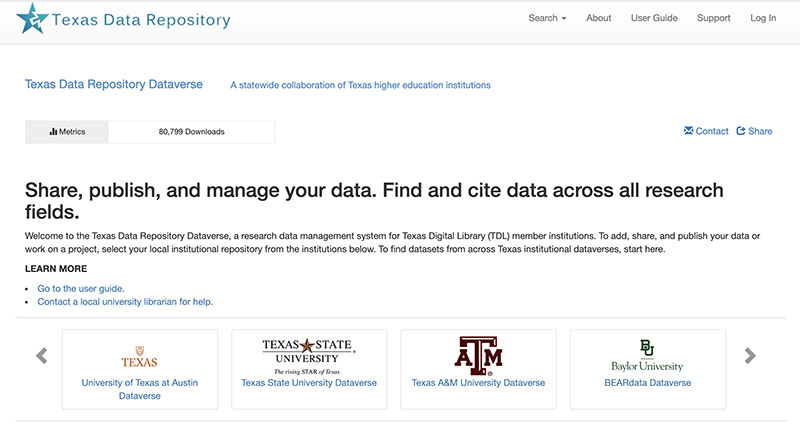
- TDR is a platform for publishing and archiving datasets created by faculty, staff, and students at UT. It is hosted by the Texas Digital Library.
- Copyright status of items varies, but most are licensed for reuse.
When we started documenting all the things we support, we found the list was longer than is feasible for a single post, so please see our Open Access blog and Twitter account for more examples of open access projects being supported by UT Libraries.
Because we believe that access to information is a fundamental right, UT Libraries will continue to prioritize support for open access publishing, open educational resources, and open data.
We welcome any questions you may have about the OA projects listed above or OA projects you’d like to see us support.

